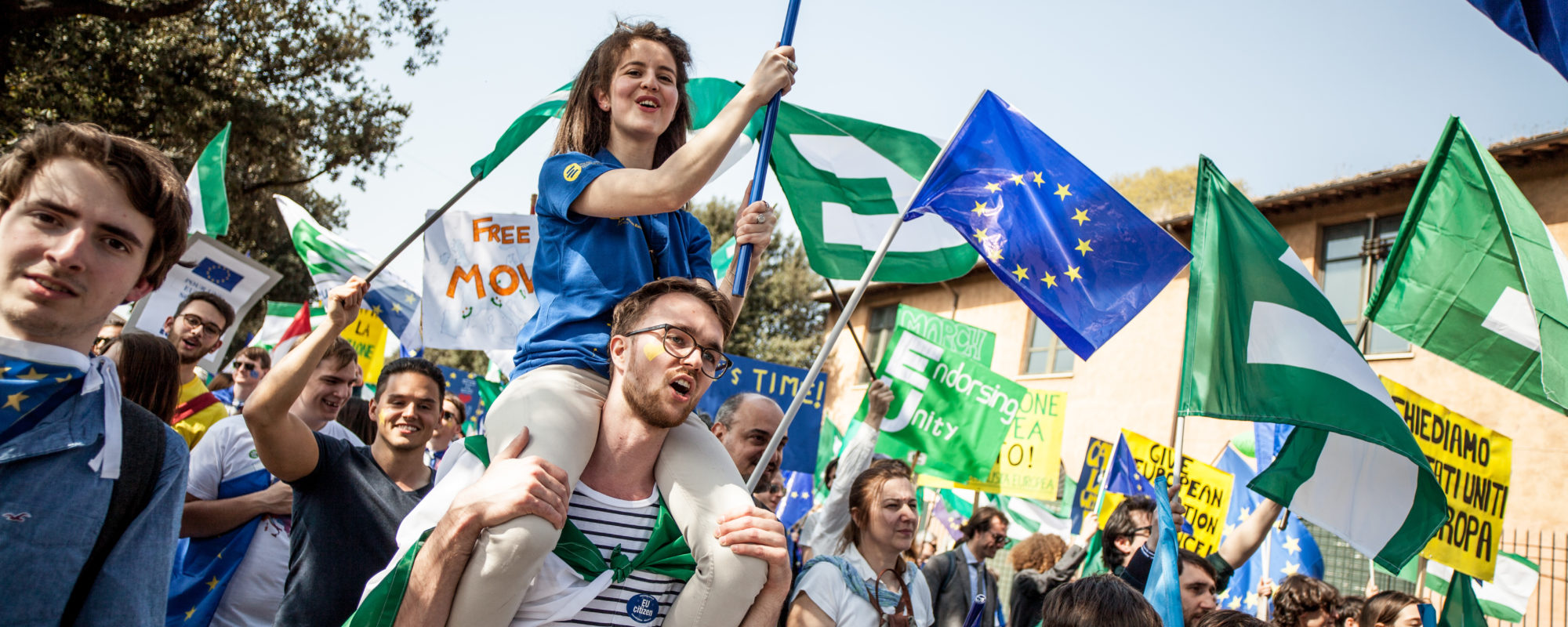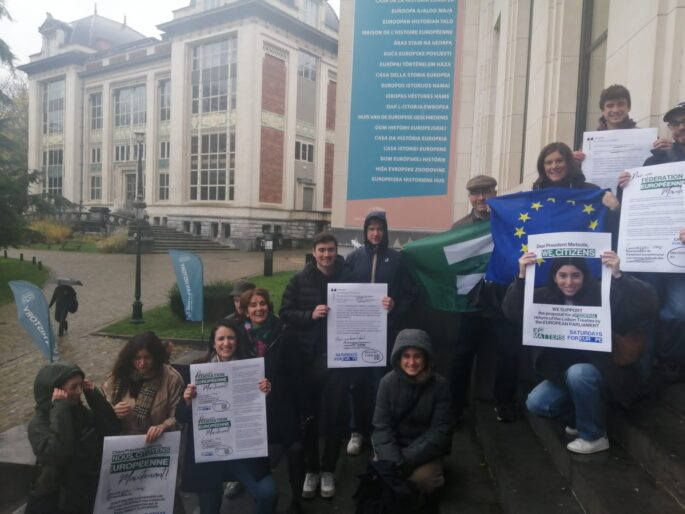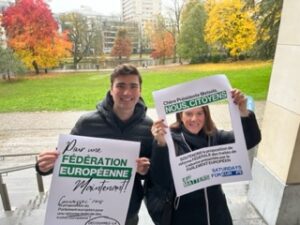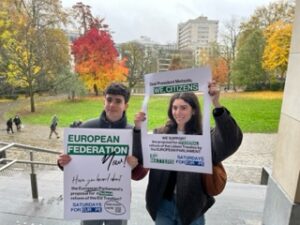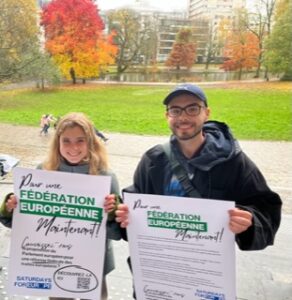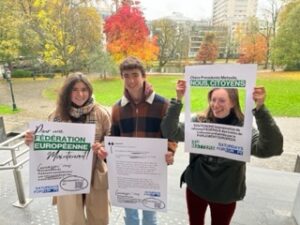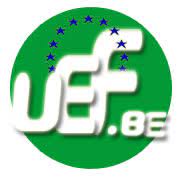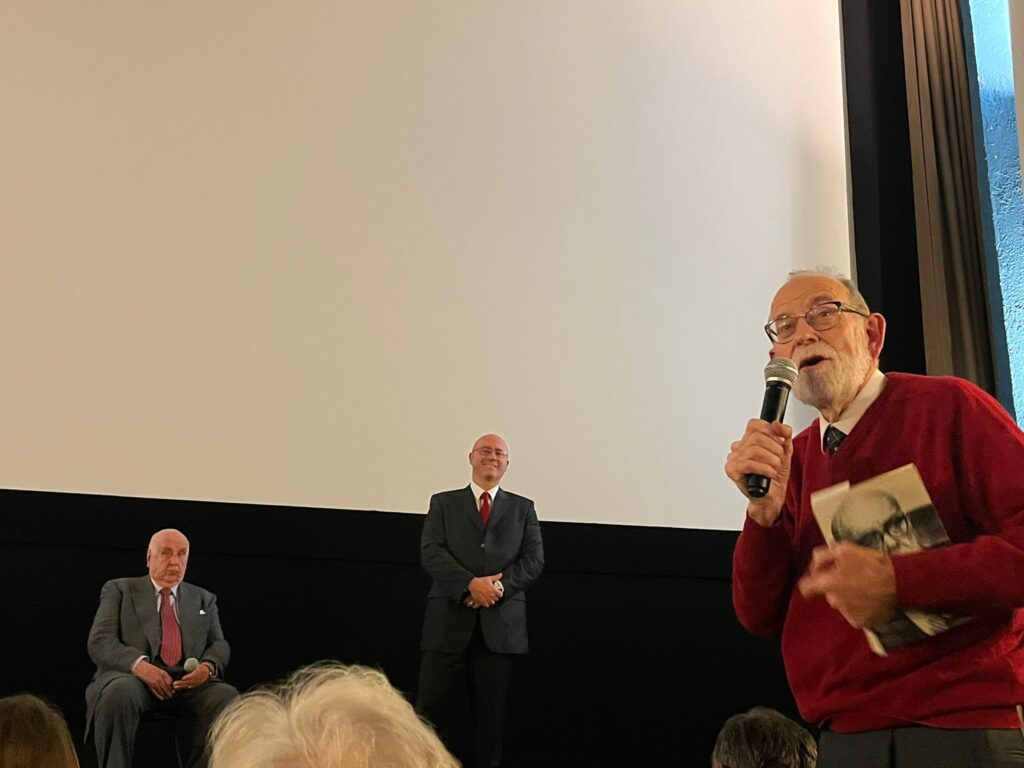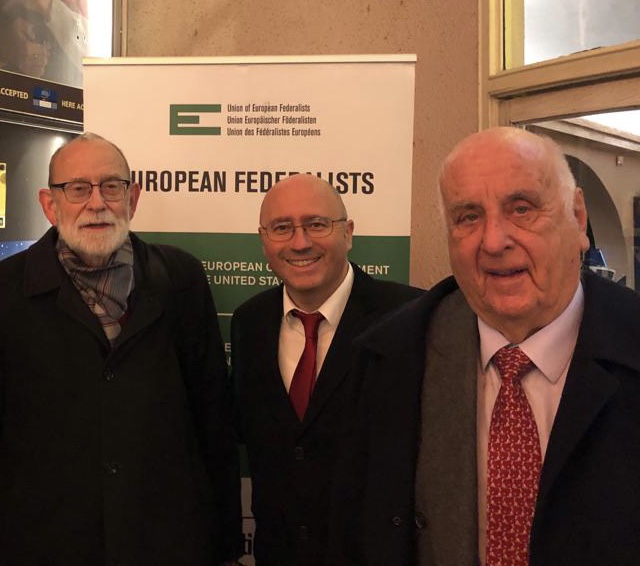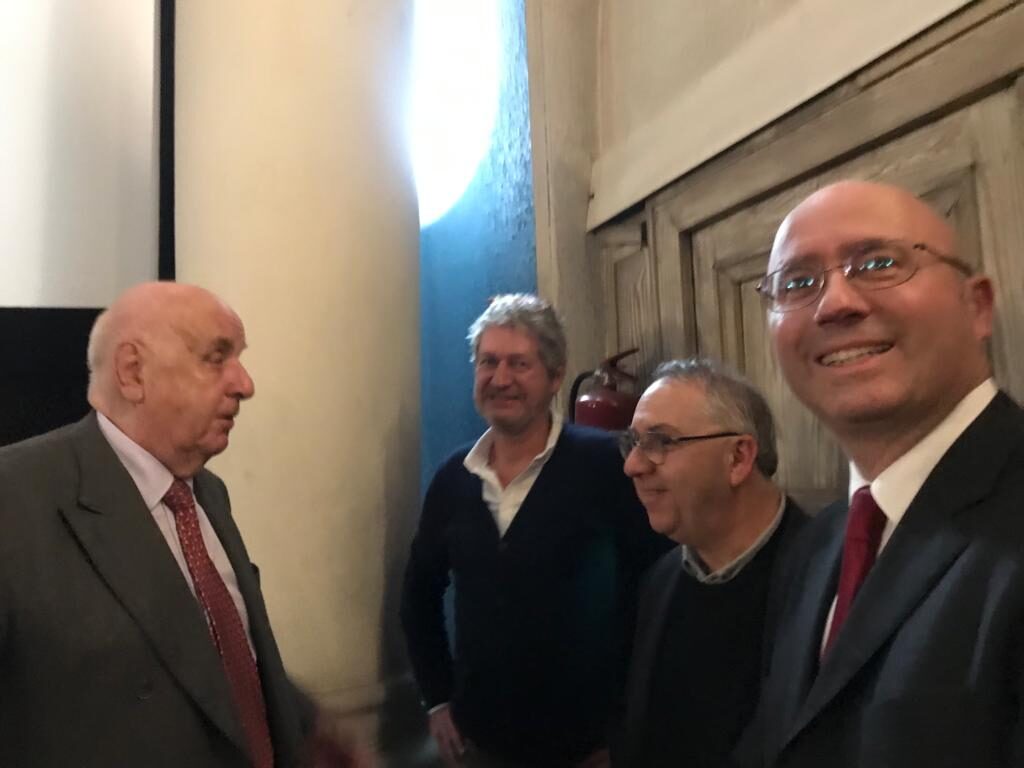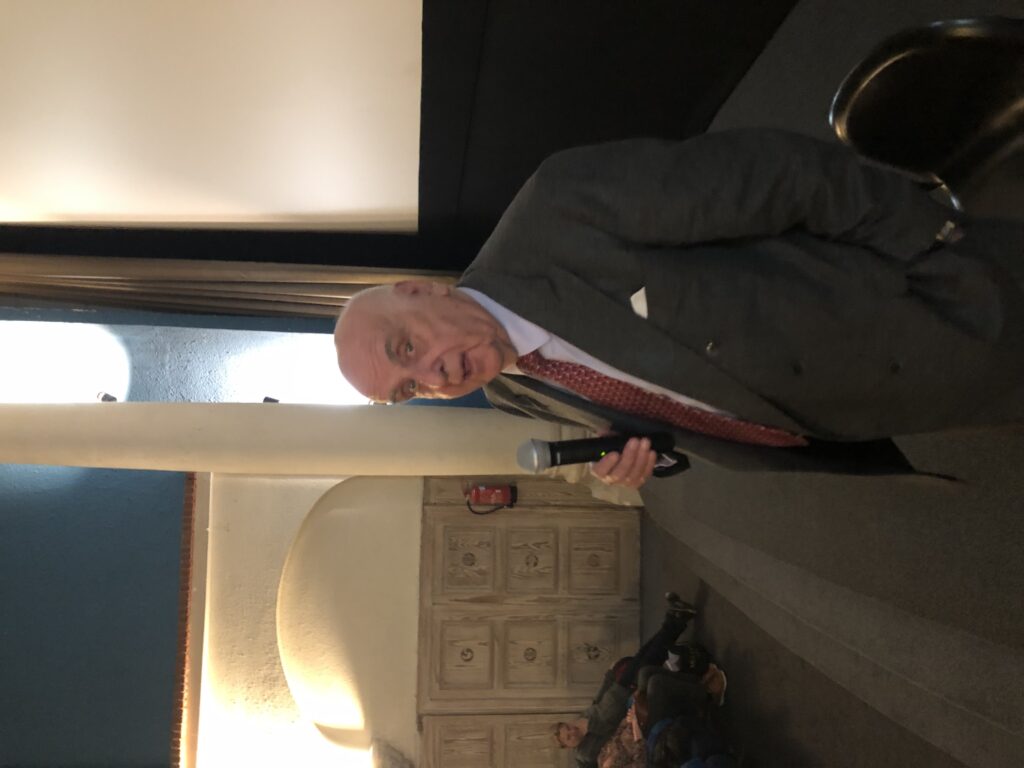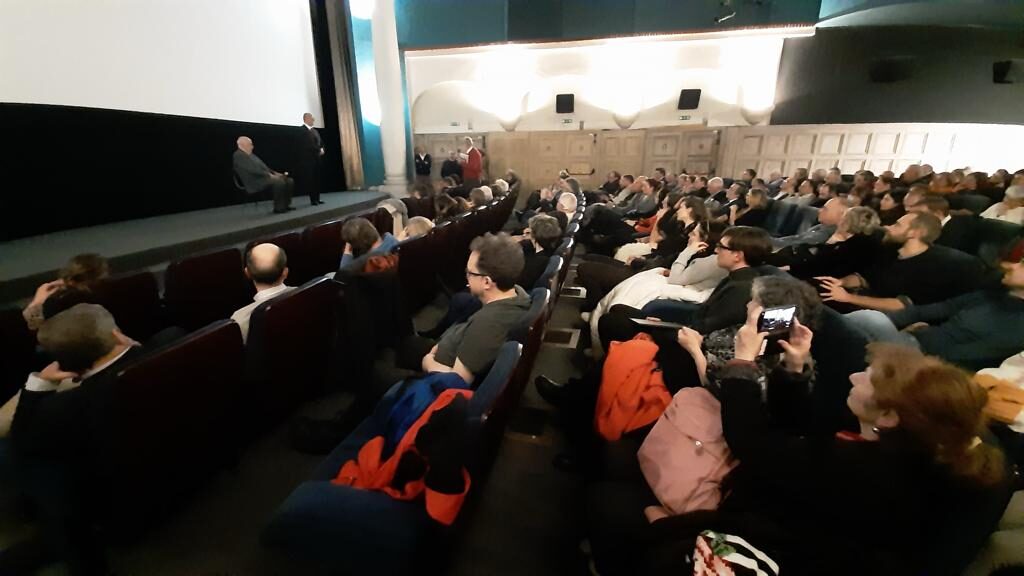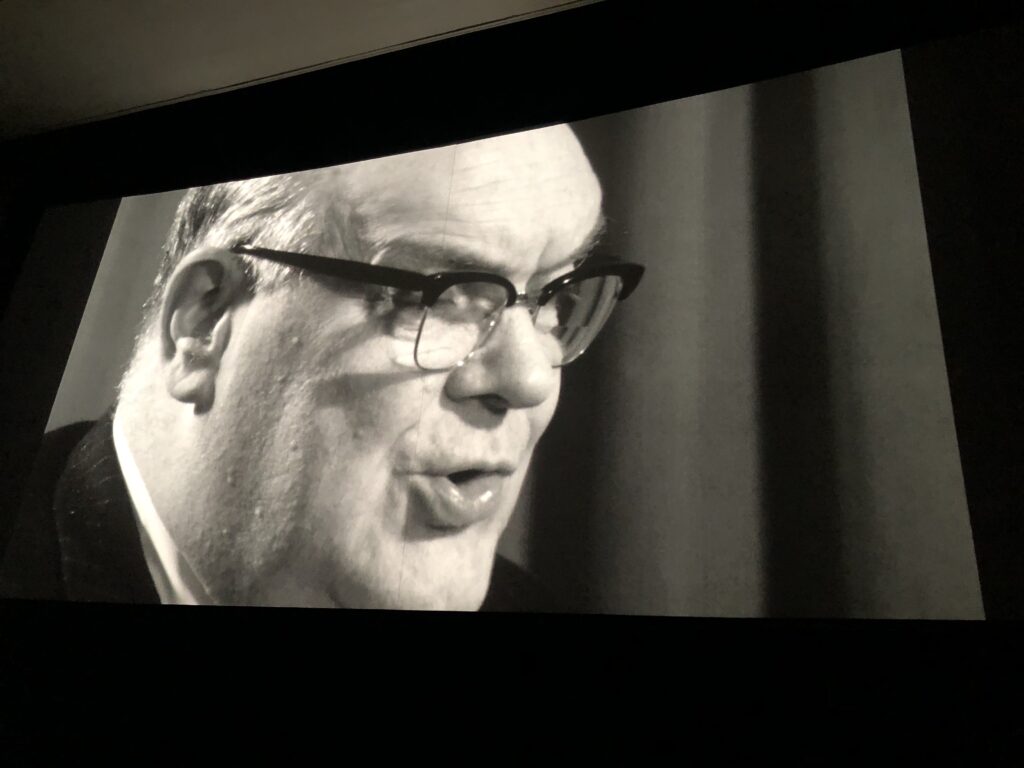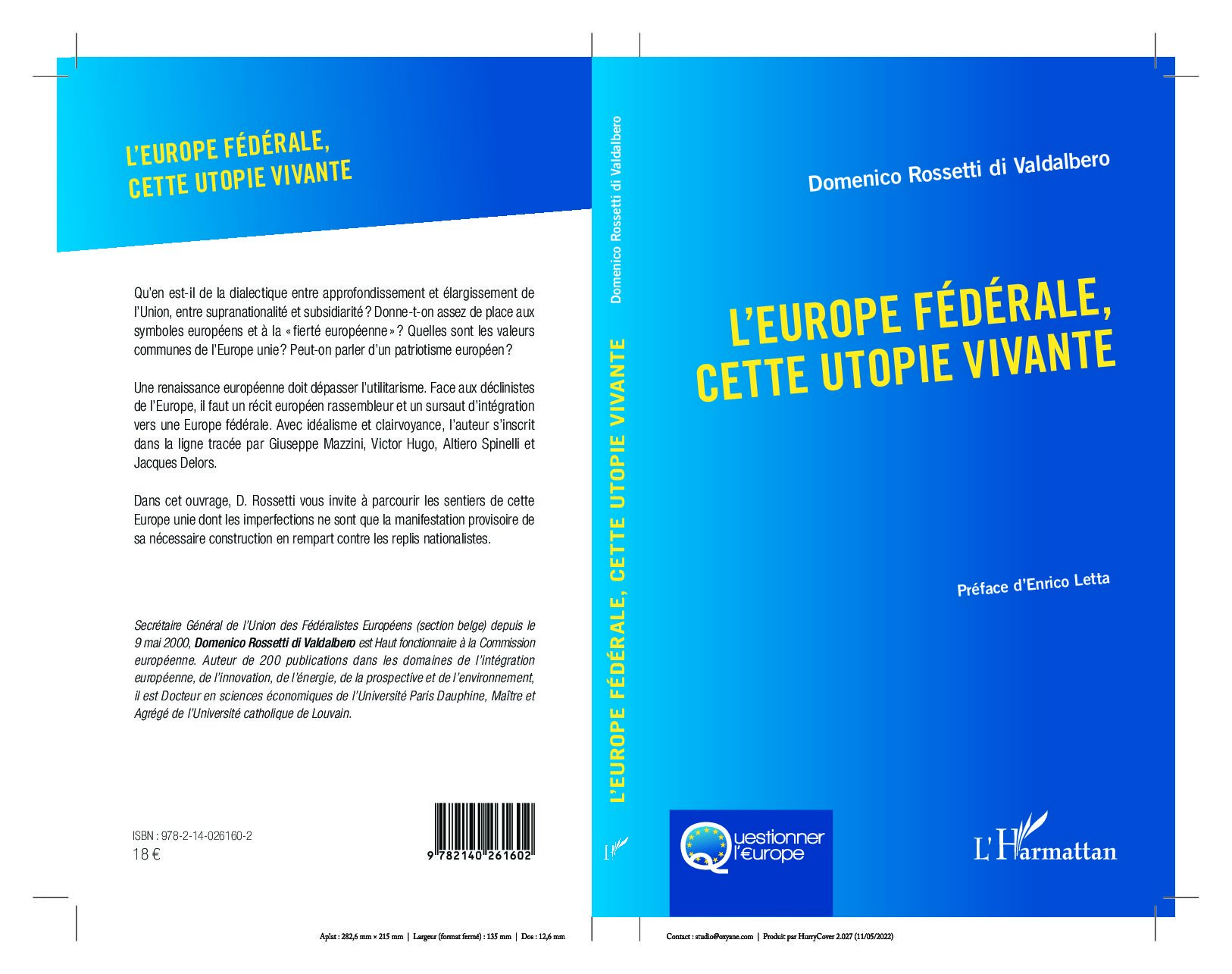The Federal Committee of the Union of European federalists (UEF), meeting in Brussels on 21 October 2023,
whereas
the process to unite the peoples of Europe has been actually triggered on 9 May 1950 in Paris by Robert Schuman’s speech;
in his speech on that day he declared “Europe will not be built all at once, or as part of an overall project: it will be built through concrete achievements, first creating de facto solidarity”, adding “By pooling basic production and setting up a new High Authority, whose decisions will be
binding on France, Germany and the countries which join them, this proposal [i.e. the pooling of coal and steel production] will lay the first concrete foundations for a European Federation (…)”;
73 years later to date, several such concrete achievements have been performed, some of them, in particular, being in whole or in part federal in nature, such as (1) the Court of Justice of the European Union, (2) the election of their representatives in the European Parliament by direct universal suffrage by all citizens of the European Union, and (3) the
Economic and Monetary Union;
democracy is one of the uttermost values on which the European Union is founded (Art. 2 TEU);
considering
that however, the functioning of the current institutions of the European Union suffers from a blatant lack of democracy and of democratic legitimacy that European citizens are constantly denouncing — as they have done in the framework of the Conference of the Future of Europe—, just as the Federal Constitutional Court of Karlsruhe stresses, in particular, in its Judgement 2 BvE 2/08 of 30 June 2009;
that, as the founders and members of the European federalist movement, including Altiero Spinelli and Mario Albertini, have consistently proclaimed from the outset and so far, the democratic functioning of the European Union can only be reached and guaranteed at European level by the adoption of a European federal constitution by its citizens — who,
summoned together to the polls, constitute Europe’s demos —, therein bringing their union process to its conclusion;
that in essence, the constitution that a sovereign group of citizens gives itself can never be granted by international treaties, even if possibly reformed, and that the spurious so-called
“Draft Constitutional Treaty” of 2004, among others, indeed an international intergovernmental treaty, had none of the characteristics of a democratic constitution and still leaves the constituent process in abeyance;
that the proposal No 39 “EU Decision making process” of the Conference on the Future of Europe suggests in its paragraph 7 “Reopening the discussion about the constitution, where applicable, to help us align better on our values” adding “A constitution may help to be more precise as well as involve citizens and agree on the rules of the decision-making process”, while democracy is undoubtedly one of the most important values, if not the most important, underpinning the European Union;
that the events through which Europe has collectively been passing over the last four years
— pandemics, climate change, accelerated environmental degradation, immigration pressure, together with the repeated evidence of its geopolitical incapacity and absence of defence autonomy, as well as other circumstances that are most likely to occur in the short term
— underline the extremely urgent need for legitimate collective governance capable of overcoming categorical and national selfishness or blindness;
that there is an absolute necessity, following the situation created by Putin’s full-scale war of aggression against Ukraine, to combine an urgent and crucial enlargement with the political deepening of the integration project, if EU wants to be successful. Indeed, in this framework, at least abolishing unanimity on policies of a strategic nature (foreign policy, taxation, multi-annual budget, own resources, electoral law, monitoring of the rule of law, reform of the Treaties, among others), becomes unavoidable;
strongly urges
─ that the Parliament seizes its intrinsic mission by largely approving the Draft Report thus enabling the citizens who elect it between 6 and 9 June 2024 to benefit at last from the highest possible level of European democracy;
─ that, throughout the election campaign, candidates standing to represent those citizens be firmly reminded of their imperative duty to fulfil that task and to commit, with a view to the opening of a Convention for the reform of the Treaties, to undertake that it turns into a constituent occasion to lay the foundations for a new European juridical system, of a federal type, which would establish the transition from a community of states ruled by treaties, to a political community of a state nature, based on a true constitution;
─ that, if Member States don’t give their agreement to open the Convention for the reform of the Treaties, the European Parliament newly elected needs to reaffirm itself as a permanent constituent assembly to draft a European federal constitution, which will have to be adopted by the European Parliament and ratified by the competent bodies in the Member
States, and elaborated with the possible participation of citizens and such organisations and bodies as it deems appropriate;
─ that, to this end, in all Member States, the election campaign for that election give this issue the top priority it deserves, with the involvement and active support of all UEF sections.

